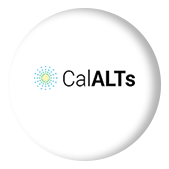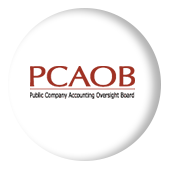Unlock Meaningful Tax Benefits as a Trader
Are You Eligible for Trader Tax Status?
Trader tax status (TTS) unlocks meaningful tax benefits for active or day traders who qualify. Our Certified Public Accountants (CPAs) can help you determine your eligibility.
There aren’t straightforward guidelines available for day traders to ascertain whether they qualify for trader tax status. Active or day traders need to walk through a subjective, two-part test to determine their eligibility.
The two-part eligibility test:
- The taxpayer’s trading activity must be substantial, regular, frequent and continuous.
- The taxpayer must seek to catch the swings in the daily market movements and profit from these short-term changes rather than profiting from the long-term holding of investments.
Qualifying businesses can claim tax breaks such as business expense treatment, and more.
Akram specializes in tax preparation for day traders. For in-depth information about qualification for trader tax status, read our article from The Akram Brief, Most Expensive Tax Errors Made by Day Traders & Tax Preparers.
Structuring a Trader Entity
Structuring an entity for trading generates tax savings in excess of entity formation and compliance costs. Day traders solidify trader tax status (TTS), unlock employee-benefit deductions, gain flexibility with a Section 475 election and revocation, and limit wash-sale losses with individual and IRA accounts. Day traders should be considered to incorporate an S-Corp for deducting health insurance and retirement plan contributions. Akram can help you to structure a tax efficient trading entity.
Mark-to-Market (MTM) Election
Active traders are entitled to make the Sec. 475 ( F) election to use the mark-to-market (MTM) accounting. The 475 ( F ) election converts capital gains and losses into ordinary gains and losses, avoiding the $3,000 capital loss limitation and wash sale adjustment. Sec. 475 ordinary losses offset income of any kind, and a net operating loss carries forward to subsequent tax years.
Qualified Business Income (QBI) Deduction for Traders
The Coronavirus Aid, Relief, and Economic Security (CARES) Act includes significant tax relief provisions for traders. Tax relief applies retroactively to 2018, 2019, and 2020 tax years. It allows TTS traders to carryback NOLs five tax years for 2018, 2019 and 2020. If you have massive trading losses in 2020, a timely-filed 475 election is essential for TTS or Day traders.
TCJA introduced a new tax deduction for pass-through businesses, including sole proprietors, partnerships, and S-Corps. Subject to haircuts and limitations, a pass-through business could be eligible for a 20% deduction on QBI. Day trading is considered a “specified service activity,” which means if the taxable income is above certain threshold, the taxpayer won’t receive a QBI deduction.
Tradelog Tax Software
A common oversight when obtaining reports for wash sale tax reporting purposes is to rely on broker-issued Form 1099-Bs solely. Although this form provides cost-basis reporting information, it does not give taxpayers a complete picture, especially if the taxpayer has multiple trading accounts or trades equity options. Akram suggests day traders to use Tradelog tax software to produce three tax reports called Form 4797, MTM and Section 481 adjustment reports. Day traders also need to pay attention to wash sale rules.
Akram in the Media
- Conflicting Tax Forms Create Nightmares for Some Investors - Bloomberg.com
- Akram & Associates: Best Accounting Firm – Start-Up and Emerging Funds - Hedgeweek.com
- Dynamism and proactivity in times of uncertainty - Hedgeweek.com
- Akram & Associates adds five to team on back of 40 per cent growth in 2019 - Hedgeweek.com
- Akram & Associates continues to focus on emerging managers and US family offices - Hedgeweek.com
- Akram & Associates opens NYC office - Hedgeweek.com














